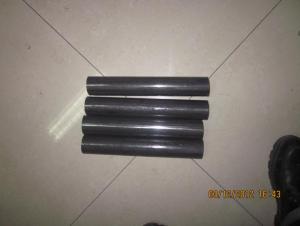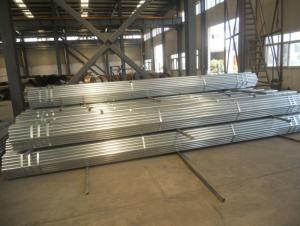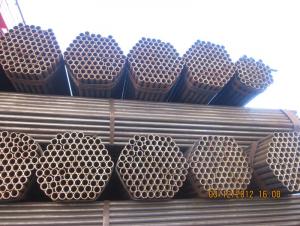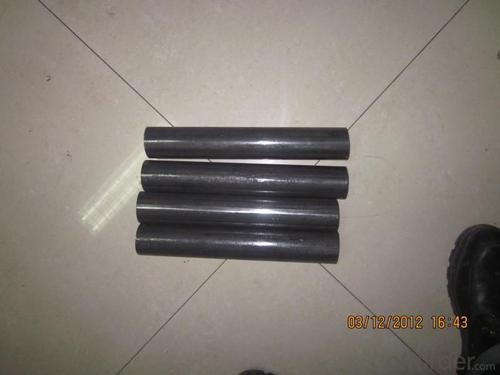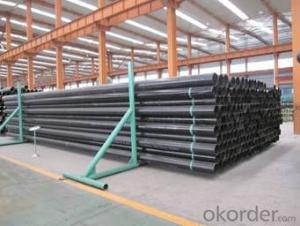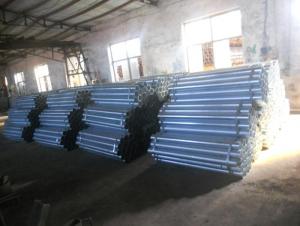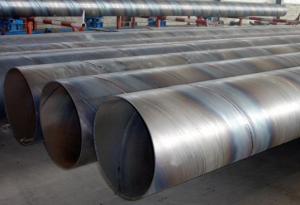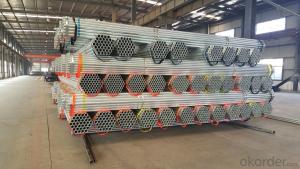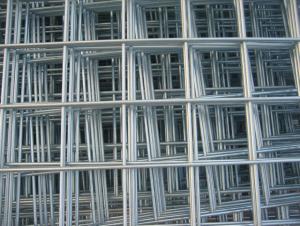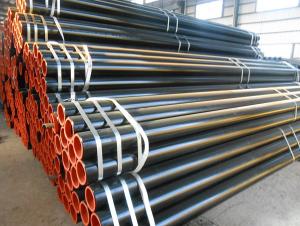ERW Welded Steel Pipes For Fence
- Loading Port:
- Tianjin Port
- Payment Terms:
- TT or L/C
- Min Order Qty:
- 50MT m.t.
- Supply Capability:
- based on order m.t./month
OKorder Service Pledge
OKorder Financial Service
You Might Also Like
Good price of ERW Welded Steel Pipes For Fence ,
Application of ERW Welded Steel Pipes For Fence :It is widely applied to line pipe and casing and tubing in oil transportation and casing field, and it is used in Low,high pressure liquid and gassy transportation and it is also good Structure pipe (for furniture, window, door, building , bridge, mechanical etc).
Package of ERW Welded Steel Pipes For Fence : bundles with anti-rust painting and with plastic caps
Standard of ERW Welded Steel Pipes For Fence : API SPEC 5L, API SPEC 5CT, ASTM A53, GB/T9711.1
Steel Grade of ERW Welded Steel Pipes For Fence :API SPEC 5L: B, X42, X46, X52, X56, X60, X65,API SPEC 5CT: J55, K55, N80, L80-1 ,ASTM A53: A, B, C
GB/T9711.1:L242、L290、L320、L360、L390、L415、L450
Sizes of ERW Welded Steel Pipes For Fence :
*Remark: Besides below sizes, we also can arrange production based on requirement of customers
|
OD |
WT |
WEIGHT | ||||
|
INCH |
MM |
SCH |
MM |
INCH |
KG/M |
LB/INCH |
|
1 1/2” |
48.3 |
STD-40 |
3.68 |
0.145 |
4.09 |
2.75 |
|
1 1/2” |
48.3 |
XS-80 |
5.08 |
0.2 |
5.47 |
3.68 |
|
2” |
60.3 |
STD-40 |
3.91 |
0.154 |
5.49 |
3.69 |
|
2” |
60.3 |
XS-80 |
5.54 |
0.218 |
7.56 |
5.08 |
|
2 1/2” |
73 |
STD-40 |
5.16 |
0.203 |
8.72 |
5.86 |
|
2 1/2” |
73 |
XS-80 |
7.01 |
0.276 |
11.52 |
7.74 |
|
3” |
88.9 |
STD-40 |
5.49 |
0.216 |
11.41 |
7.67 |
|
3” |
88.9 |
XS-80 |
7.62 |
0.3 |
15.43 |
10.37 |
|
3 1/2” |
101.6 |
STD-40 |
5.74 |
0.226 |
13.71 |
9.21 |
|
3 1/2” |
101.6 |
XS-80 |
8.08 |
0.318 |
18.83 |
12.65 |
|
4” |
114.3 |
STD-40 |
6.02 |
0.237 |
16.24 |
10.91 |
|
4” |
114.3 |
XS-80 |
8.56 |
0.337 |
22.55 |
15.15 |
|
5” |
141.3 |
STD-40 |
6.55 |
0.258 |
21.99 |
14.78 |
|
5” |
141.3 |
XS-80 |
9.53 |
0.375 |
31.28 |
21.02 |
|
6” |
168.3 |
STD-40 |
7.11 |
0.28 |
28.55 |
19.19 |
|
6” |
168.3 |
XS-80 |
10.97 |
0.432 |
42.99 |
28.89 |
|
8” |
219.1 |
STD-40 |
8.18 |
0.322 |
42.98 |
28.88 |
|
8” |
219.1 |
XS-80 |
12.7 |
0.5 |
65.3 |
43.88 |
|
10” |
273 |
STD-40 |
9.27 |
0.365 |
60.9 |
40.92 |
|
10” |
273 |
80 |
15.09 |
0.594 |
96.95 |
65.15 |
|
12” |
323.8 |
STD |
9.53 |
0.375 |
74.61 |
50.13 |
|
12” |
323.8 |
40 |
10.31 |
0.406 |
80.51 |
54.1 |
|
12” |
323.8 |
XS |
12.7 |
0.5 |
98.42 |
66.14 |
|
12” |
323.8 |
80 |
17.48 |
0.688 |
133.38 |
89.63 |
|
14” |
355.6 |
40 |
11.13 |
0.438 |
95.51 |
64.18 |
|
14” |
355.6 |
XS |
12.7 |
0.5 |
108.48 |
72.9 |
|
14” |
355.6 |
80 |
19.05 |
0.75 |
159.71 |
107.32 |
|
16” |
406.4 |
XS-40 |
12.7 |
0.5 |
124.55 |
83.69 |
|
18” |
457 |
STD |
9.53 |
0.375 |
106.23 |
71.38 |
|
18” |
457 |
40 |
14.27 |
0.562 |
157.38 |
105.75 |
|
18” |
457 |
80 |
23.83 |
0.938 |
257.13 |
172.78 |
|
20” |
508 |
40 |
15.09 |
0.594 |
185.28 |
124.5 |
|
20” |
508 |
80 |
26.19 |
1.031 |
314.33 |
211.22 |
Picturers of of ERW Welded Steel Pipes For Fence ,
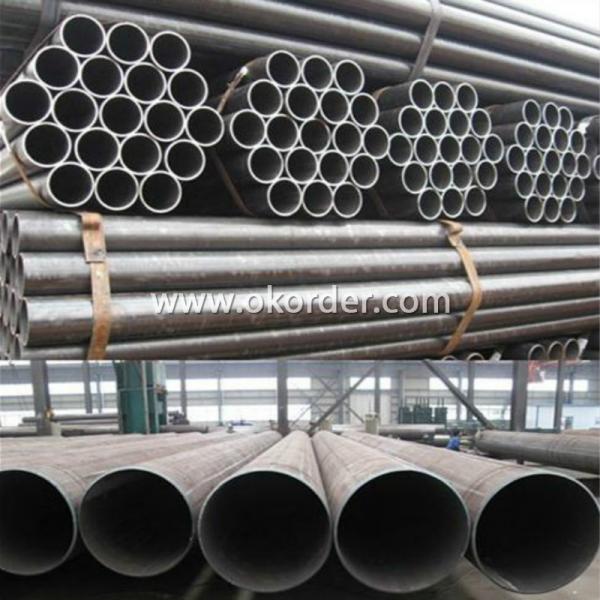
Production process.
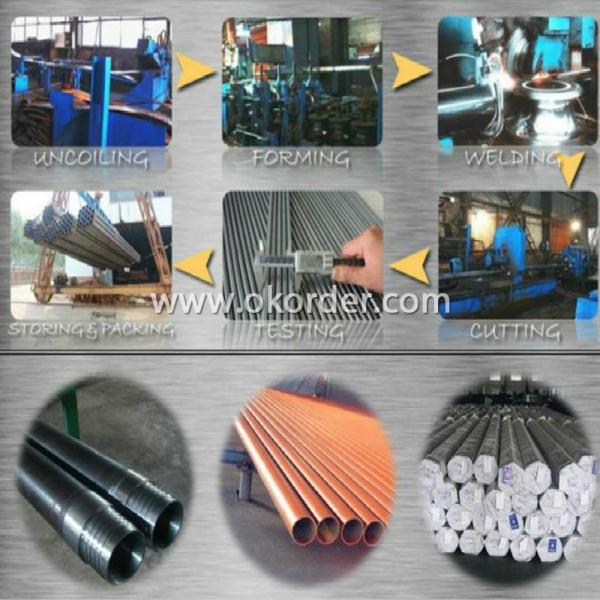
Products in Warehouse.
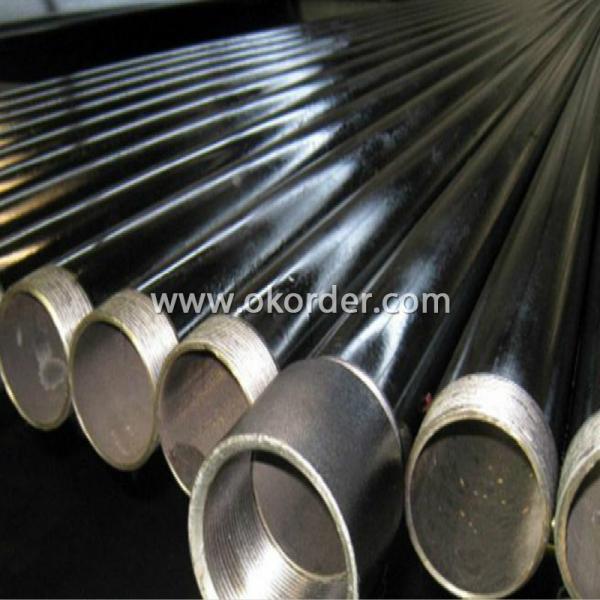
Details by close vision.
We are a company that producing all kinds of pipes, square pipes, Our company's products are exported to Brazil , Indonesia , Singapore , Central Asian countries, and other countries and regions.
Welcome to contact us for ERW Welded Steel Pipes .
- Q: How are steel pipes threaded for connection?
- Steel pipes are threaded for connection using a threading machine or a die. The pipe is clamped securely into the machine, and a rotating die is then used to cut threads into the pipe's surface. This process creates the necessary grooves and ridges that allow the pipes to be securely connected together.
- Q: How are steel pipes used in the construction of dams and water reservoirs?
- Steel pipes are used in the construction of dams and water reservoirs primarily for their strength and durability. They are commonly used to transport water within the dam or reservoir, as well as for drainage systems. Steel pipes are also utilized for the construction of intake and outlet structures, penstocks, and other components that require a robust and reliable material to withstand the high pressure and heavy loads associated with dam operation.
- Q: How are steel pipes used in the automotive manufacturing industry?
- Steel pipes are commonly used in the automotive manufacturing industry for various purposes such as exhaust systems, fuel lines, and structural components. They provide durability, strength, and resistance to high temperatures, making them ideal for these applications.
- Q: How are steel pipes used in the construction of wastewater treatment plants?
- Steel pipes are commonly used in the construction of wastewater treatment plants for various purposes, such as transporting and distributing water, chemicals, and sludge within the facility. They are also used for constructing the main drainage systems, including sewer lines, stormwater drains, and effluent pipes, ensuring efficient and reliable flow of wastewater. Additionally, steel pipes are utilized for constructing the structural framework of treatment units, such as settling tanks, clarifiers, and aeration systems, providing stability and durability to withstand the harsh conditions of wastewater treatment processes.
- Q: How to identify stainless steel pipe and steel pipe?
- Steel pipe according to the production method can be divided into two categories: seamless steel pipe and pipe joints, pipe joints as welded steel pipe.1. seamless steel tube according to the production methods can be divided into: hot-rolled seamless pipe, cold drawn tube, precision steel tube, heat expansion tube, cold spinning tube and extrusion tube.Seamless steel tubes are made of high quality carbon or alloy steel. They are hot-rolled and cold-rolled (drawn).Bundled steel pipe2. welded steel pipe for different welding process and divided into the furnace pipe welding (ERW) pipe and automatic arc welding, because of the different forms of welding seam welded pipe and spiral welded pipe is divided into two kinds, end its shape is divided into circular welded and shaped (square, flat) pipe.
- Q: Can steel pipes be used for steam distribution?
- Yes, steel pipes can be used for steam distribution. Steel pipes are commonly used in steam distribution systems due to their high strength, durability, and resistance to high temperatures and pressure. They can effectively handle the transportation of steam in various industries such as power generation, chemical processing, and heating systems.
- Q: How are steel pipes used in the automotive exhaust systems?
- Steel pipes are commonly used in automotive exhaust systems because steel is a durable and heat-resistant material. Steel pipes are used to transport the exhaust gases from the engine to the muffler and tailpipe, ensuring that the gases are safely and efficiently expelled from the vehicle. These pipes are designed to withstand high temperatures, corrosion, and vibration, making them an essential component in the exhaust system.
- Q: What are the environmental impacts of steel pipe production and disposal?
- The environmental impacts of steel pipe production and disposal are mainly related to the extraction and processing of raw materials, energy consumption, greenhouse gas emissions, and waste generation. The production of steel pipes requires the extraction of iron ore and other raw materials, which can lead to habitat destruction and biodiversity loss. The processing and manufacturing of steel pipes also involve significant energy consumption, contributing to carbon dioxide emissions and climate change. Additionally, the disposal of steel pipes, especially if not properly managed, can result in waste accumulation and potential soil and water pollution. Therefore, it is crucial to consider sustainable practices and recycling options to minimize the environmental impacts associated with steel pipe production and disposal.
- Q: What are the different grades of steel used in pipes?
- The different grades of steel used in pipes include carbon steel, alloy steel, stainless steel, and duplex stainless steel.
- Q: RC is it welded steel pipe or galvanized steel pipe?
- RC pipe is galvanized steel pipe, usually followed by the diameter, such as RC50, that is, 50mm galvanized steel pipe.
1. Manufacturer Overview
| Location | Tianjin, China |
| Year Established | 1997 |
| Annual Output Value | Above Three Million To Five Million RMB |
| Main Markets | Main land |
| Company Certifications | ISO 9001:2010;API 5L; |
2. Manufacturer Certificates
| a) Certification Name | |
| Range | |
| Reference | |
| Validity Period |
3. Manufacturer Capability
| a) Trade Capacity | |
| Nearest Port | Tianjin |
| Export Percentage | 40% - 50% |
| No.of Employees in Trade Department | 300-500 People |
| Language Spoken: | English; Chinese |
| b) Factory Information | |
| Factory Size: | 40,000 square meters |
| No. of Production Lines | Above 10 |
| Contract Manufacturing | OEM Service Offered; Design Service Offered |
| Product Price Range | Average |
Send your message to us
ERW Welded Steel Pipes For Fence
- Loading Port:
- Tianjin Port
- Payment Terms:
- TT or L/C
- Min Order Qty:
- 50MT m.t.
- Supply Capability:
- based on order m.t./month
OKorder Service Pledge
OKorder Financial Service
Similar products
Hot products
Hot Searches
Related keywords
